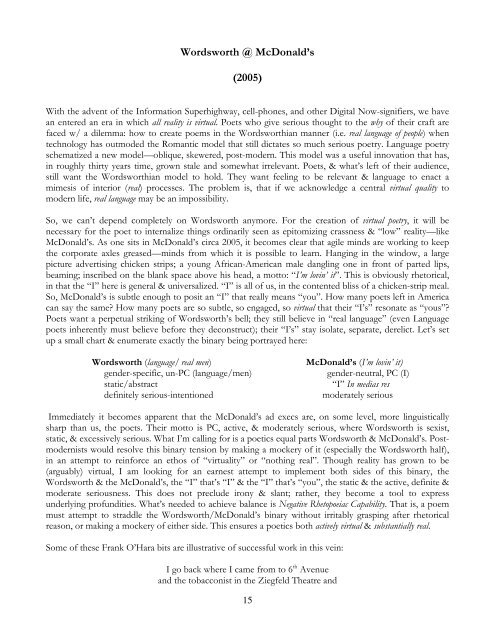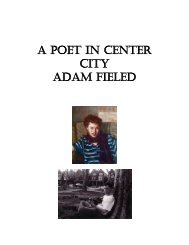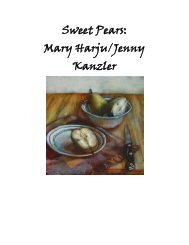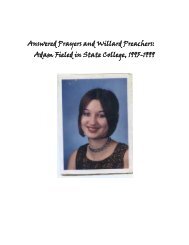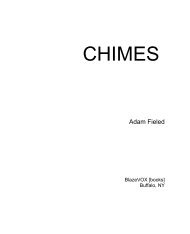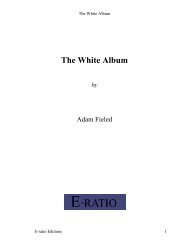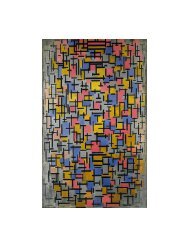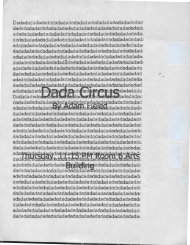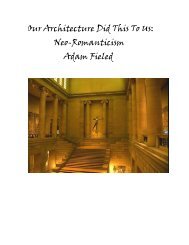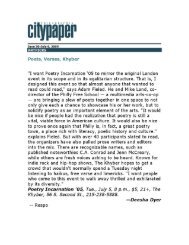3 E-Books: The Argotist Online
These three Adam Fieled collections, The Posit Trilogy, Mother Earth, and Disturb the Universe: The Collected Essays of Adam Fieled, were released in e-book form by The Argotist Online, in 2017, 2011, and 2010, respectively.
These three Adam Fieled collections, The Posit Trilogy, Mother Earth, and Disturb the Universe: The Collected Essays of Adam Fieled, were released in e-book form by The Argotist Online, in 2017, 2011, and 2010, respectively.
Create successful ePaper yourself
Turn your PDF publications into a flip-book with our unique Google optimized e-Paper software.
Wordsworth @ McDonald’s<br />
(2005)<br />
With the advent of the Information Superhighway, cell-phones, and other Digital Now-signifiers, we have<br />
an entered an era in which all reality is virtual. Poets who give serious thought to the why of their craft are<br />
faced w/ a dilemma: how to create poems in the Wordsworthian manner (i.e. real language of people) when<br />
technology has outmoded the Romantic model that still dictates so much serious poetry. Language poetry<br />
schematized a new model—oblique, skewered, post-modern. This model was a useful innovation that has,<br />
in roughly thirty years time, grown stale and somewhat irrelevant. Poets, & what’s left of their audience,<br />
still want the Wordsworthian model to hold. <strong>The</strong>y want feeling to be relevant & language to enact a<br />
mimesis of interior (real) processes. <strong>The</strong> problem is, that if we acknowledge a central virtual quality to<br />
modern life, real language may be an impossibility.<br />
So, we can’t depend completely on Wordsworth anymore. For the creation of virtual poetry, it will be<br />
necessary for the poet to internalize things ordinarily seen as epitomizing crassness & “low” reality—like<br />
McDonald’s. As one sits in McDonald’s circa 2005, it becomes clear that agile minds are working to keep<br />
the corporate axles greased—minds from which it is possible to learn. Hanging in the window, a large<br />
picture advertising chicken strips; a young African-American male dangling one in front of parted lips,<br />
beaming; inscribed on the blank space above his head, a motto: “I’m lovin’ it”. This is obviously rhetorical,<br />
in that the “I” here is general & universalized. “I” is all of us, in the contented bliss of a chicken-strip meal.<br />
So, McDonald’s is subtle enough to posit an “I” that really means “you”. How many poets left in America<br />
can say the same? How many poets are so subtle, so engaged, so virtual that their “I’s” resonate as “yous”?<br />
Poets want a perpetual striking of Wordsworth’s bell; they still believe in “real language” (even Language<br />
poets inherently must believe before they deconstruct); their “I’s” stay isolate, separate, derelict. Let’s set<br />
up a small chart & enumerate exactly the binary being portrayed here:<br />
Wordsworth (language/ real men)<br />
gender-specific, un-PC (language/men)<br />
static/abstract<br />
definitely serious-intentioned<br />
McDonald’s (I’m lovin’ it)<br />
gender-neutral, PC (I)<br />
“I” In medias res<br />
moderately serious<br />
Immediately it becomes apparent that the McDonald’s ad execs are, on some level, more linguistically<br />
sharp than us, the poets. <strong>The</strong>ir motto is PC, active, & moderately serious, where Wordsworth is sexist,<br />
static, & excessively serious. What I’m calling for is a poetics equal parts Wordsworth & McDonald’s. Postmodernists<br />
would resolve this binary tension by making a mockery of it (especially the Wordsworth half),<br />
in an attempt to reinforce an ethos of “virtuality” or “nothing real”. Though reality has grown to be<br />
(arguably) virtual, I am looking for an earnest attempt to implement both sides of this binary, the<br />
Wordsworth & the McDonald’s, the “I” that’s “I” & the “I” that’s “you”, the static & the active, definite &<br />
moderate seriousness. This does not preclude irony & slant; rather, they become a tool to express<br />
underlying profundities. What’s needed to achieve balance is Negative Rhetopoeiac Capability. That is, a poem<br />
must attempt to straddle the Wordsworth/McDonald’s binary without irritably grasping after rhetorical<br />
reason, or making a mockery of either side. This ensures a poetics both actively virtual & substantially real.<br />
Some of these Frank O’Hara bits are illustrative of successful work in this vein:<br />
I go back where I came from to 6 th Avenue<br />
and the tobacconist in the Ziegfeld <strong>The</strong>atre and<br />
15


